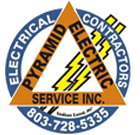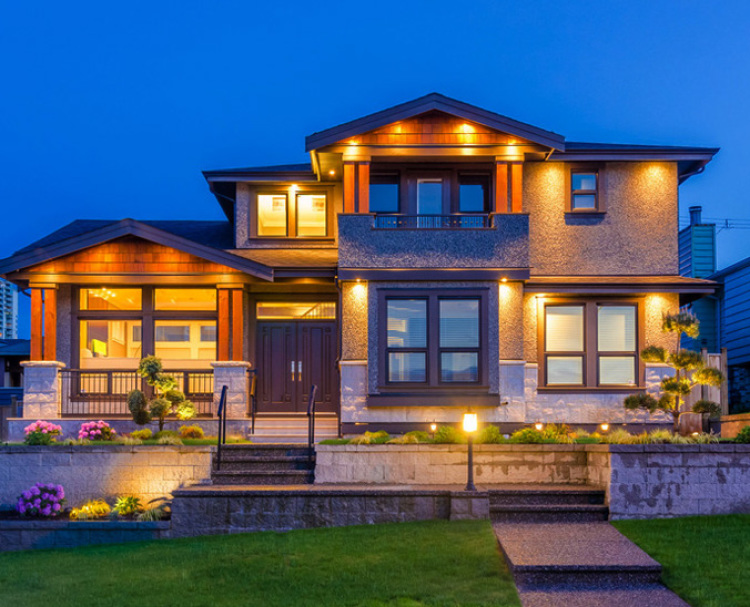Residential lighting services make sure your home’s lighting is optimal
Charlotte’s top residential lighting services can help install optimal lighting in your home. Lighting plays a crucial role in shaping the ambiance, functionality, and overall aesthetic appeal of residential spaces. From enhancing the mood of a room to providing essential task lighting, the right lighting solutions can significantly impact the comfort and livability of a home. As such, when designing or renovating a residential space, it’s essential to carefully consider various factors to ensure optimal lighting arrangements. In this article, we’ll explore some key considerations for residential lighting that homeowners should keep in mind.
1.1: Natural vs. Artificial Lighting
One of the fundamental considerations when planning residential lighting is the balance between natural and artificial light. Natural light not only illuminates the space but also offers numerous health benefits, including improved mood and increased productivity. Therefore, maximizing natural light by strategically placing windows, skylights, and glass doors can help reduce the reliance on artificial lighting during the day while creating a brighter, more inviting atmosphere.
However, artificial lighting remains essential, especially during the evenings or in rooms with limited natural light exposure. When choosing artificial lighting fixtures, homeowners should consider factors such as the type of bulb, color temperature, and brightness level. Energy-efficient LED bulbs are increasingly popular due to their longevity and cost-effectiveness, and they come in a variety of color temperatures to suit different preferences and applications.
1.2: Layered Lighting Design
Another important consideration in residential lighting is the concept of layered lighting design. Instead of relying solely on a single light source to illuminate a room, incorporating multiple layers of lighting can create depth, visual interest, and flexibility in adjusting the ambiance to suit various activities and occasions.
There are three primary layers of residential lighting:
- Ambient Lighting: This provides overall illumination to the room and serves as the foundation for the lighting scheme. Ambient lighting can be achieved through ceiling-mounted fixtures, recessed lights, or track lighting.
- Task Lighting: Task lighting is focused illumination designed to facilitate specific activities such as reading, cooking, or working at a desk. Task lighting fixtures include table lamps, under-cabinet lights, and pendant lights strategically placed to minimize glare and shadows.
- Accent Lighting: Accent lighting adds drama and highlights architectural features, artwork, or decorative elements within the space. This layer of lighting typically includes wall sconces, track lights, or adjustable recessed fixtures aimed at creating visual interest and focal points.
By combining these three layers of lighting, homeowners can achieve a well-balanced and versatile lighting scheme that enhances both functionality and aesthetics throughout their residences.
2: Advanced Considerations for Residential Lighting
In addition to the fundamental aspects of residential lighting discussed in the previous section, there are several advanced considerations that homeowners should keep in mind to optimize their lighting design further. From incorporating smart lighting control systems to prioritizing energy efficiency and ensuring safety, these factors play a crucial role in enhancing the overall functionality and comfort of a home.
2.1: Smart Lighting Control Systems
With advancements in technology, smart lighting control systems offer homeowners unprecedented convenience, flexibility, and energy savings. These systems allow users to remotely control and automate their lighting fixtures through smartphone apps, voice commands, or programmable schedules.
Smart lighting solutions offer a range of benefits, including:
- Remote Access: Users can adjust lighting settings from anywhere with an internet connection, allowing for greater convenience and security, especially when away from home.
- Energy Efficiency: Smart lighting systems often include features such as motion sensors, dimming capabilities, and scheduling options to optimize energy usage and reduce utility costs.
- Personalization: Through customizable settings and presets, homeowners can tailor the lighting ambiance to their preferences and specific activities, enhancing comfort and mood.
- Integration with Other Smart Devices: Smart lighting systems can be integrated with other smart home devices, such as thermostats, security cameras, and voice assistants, to create a cohesive and interconnected home automation ecosystem.
When selecting a smart lighting system, homeowners should consider factors such as compatibility with existing devices, ease of installation, and available features to ensure seamless integration and maximum benefits.
2.2: Energy Efficiency and Sustainability
As sustainability becomes an increasingly important consideration in residential design, energy-efficient lighting solutions are gaining popularity. LED bulbs, in particular, have emerged as the preferred choice for homeowners due to their superior energy efficiency, longevity, and environmental benefits.
Compared to traditional incandescent bulbs, LED lights consume significantly less energy and have a much longer lifespan, reducing both electricity costs and the frequency of bulb replacements. Additionally, LED technology produces less heat, making it safer and more comfortable for indoor use.
In addition to choosing energy-efficient light bulbs, homeowners can further reduce their environmental impact by incorporating daylight harvesting techniques, such as automated shading systems and light sensors, to maximize natural light utilization and minimize reliance on artificial lighting during daylight hours.
2.3: Safety and Compliance
Ensuring the safety of residential lighting installations is paramount to protect occupants from potential hazards such as electrical shocks, fire risks, and eye strain. Homeowners should prioritize compliance with building codes and safety standards when selecting lighting fixtures and conducting installations.
Key safety considerations include:
- Proper Fixture Selection: Choosing lighting fixtures that are certified for residential use and compatible with the intended location and voltage requirements.
- Adequate Wiring and Installation: Hiring qualified electricians to install lighting fixtures and ensure proper wiring, grounding, and insulation to prevent electrical hazards.
- Fire Safety: Avoiding the use of flammable materials near light fixtures and ensuring adequate ventilation to dissipate heat and reduce the risk of fire.
- Eye Protection: Select lighting fixtures with appropriate glare control and color rendering properties to minimize eye strain and discomfort.
By addressing these safety considerations, homeowners can create a well-lit and secure environment for their families and guests while minimizing the risk of accidents or electrical hazards.
In conclusion, residential lighting design involves a careful balance of aesthetics, functionality, energy efficiency, and safety considerations. By understanding the importance of natural and artificial lighting, implementing layered lighting designs, incorporating advanced technologies such as smart lighting control systems, prioritizing energy efficiency and sustainability, and ensuring compliance with safety standards, homeowners can create inviting, comfortable, and environmentally conscious living spaces tailored to their unique needs and preferences. With proper planning and attention to detail, residential lighting can truly illuminate the beauty and functionality of any home.
Top Charlotte Electrical Services Company
Pyramid Electric Services is an experienced professional electrical contracting company serving the Charlotte area, Marvin, Weddington, Mathews, Wesley Chapel, and Waxhaw. We are licensed and insured in North Carolina and South Carolina. When you want the best in residential electrical services and electrical installations, give us a call, at 803-728-5335.

